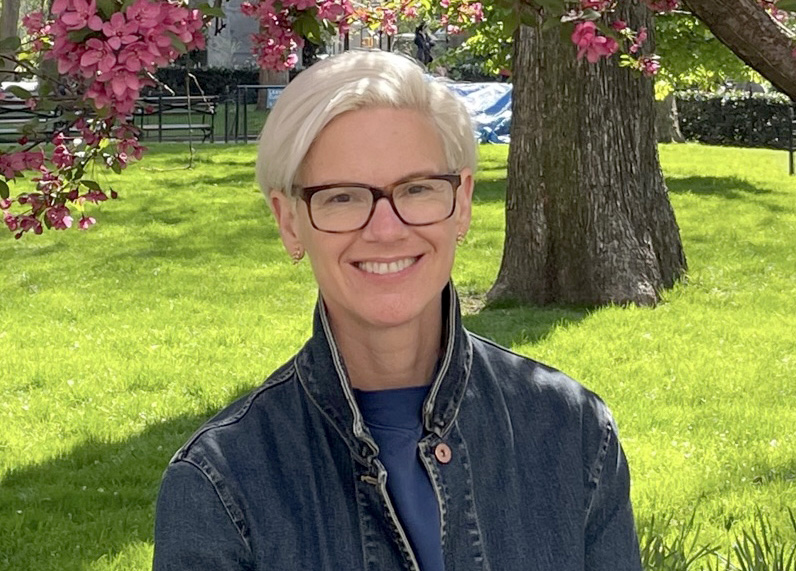Micki McElya, professor of history at UConn, has been awarded a Public Scholars Fellowship from the National Endowment for the Humanities (NEH).
The NEH Public Scholars program supports the creation of well-researched nonfiction books in the humanities written for the broad public. The award will enable McElya to work on her upcoming book examining beauty, feminism, race, women’s rights, and politics in the twentieth-century U.S. through the events of the 1968 Miss America Pageant.
At the time, many Americans viewed the Miss America Pageant, a national event that had occurred at the same time each year since 1921, as a representation of what was considered beautiful or wholesome in the United States, says McElya.
But in 1968, in the midst of the Civil Rights movement, the Vietnam War, and radical protests across the nation and the world, women’s liberation activists protested the Pageant as both a symbol and a vehicle for the oppression of women.
The group rejected the idea of a beauty contest and sought women’s liberation from a system they saw represented in the pageant, one of inequality, the objectification of women, capitalist exploitation, war, and imperialism, says McElya.
At the same time, the first Miss Black America Pageant was held to celebrate the beauty of Black women and challenge the Miss America organization, which had never had a Black state finalist.
McElya’s book, No More Miss America! How Protesting the 1968 Pageant Changed a Nation, explores the two protests and the women who participate in the pageant.
“The women who participate in these pageants are often written off in history books, their motivations are not made clear, and they’re even accused of potentially participating in their own oppression,” says McElya.
“One purpose of this book is to show these women in the same fully-formed way, with clear motives and understandings, that the activists of the 1960s and 1970s get.”
The book is a character-driven work of narrative history examining beauty, feminism, race, women’s rights, and politics in the twentieth-century U.S.
“I’m grateful to NEH, to my department head Mark Healey, and to CLAS for facilitating me accepting the award because this award gives me a chance to really explore my writerly voice and methodology,” McElya says.
“I get to spend time pushing my historical imagination. I love this history so much and I think it’s so important to have the opportunity to share that beyond the classroom as well as with academics.”
The book is expected to be published by Avid Reader in late 2023.



